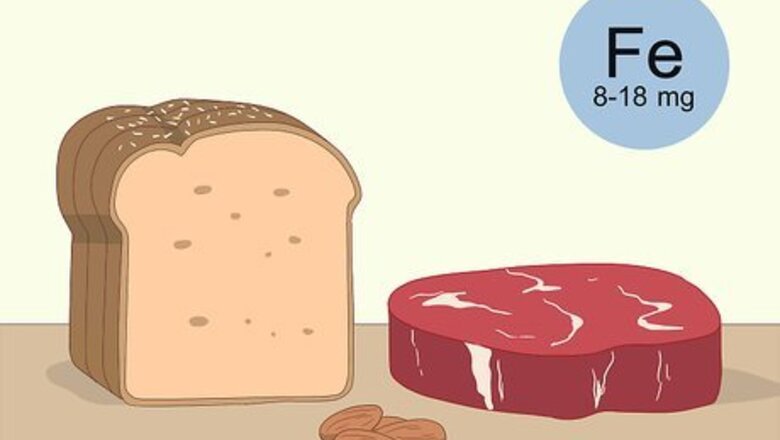
views
X
Trustworthy Source
Mayo Clinic
Educational website from one of the world's leading hospitals
Go to source
While this might sound serious, it's a treatable condition and rarely causes lasting problems. Some forms of anemia, like from a genetic condition, aren’t preventable. However, anemia from nutritional deficiencies is preventable by following a healthy diet and making some simple lifestyle changes. If you do show signs of anemia, then it’s important to visit your doctor for a professional diagnosis. You can then take steps to treat and cure the condition.
Dietary Changes
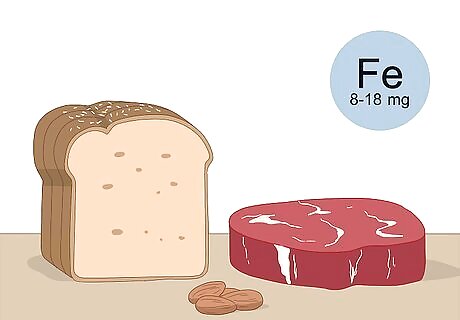
Get 8-18 mg of iron every day from your diet. The most common form of anemia comes from an iron deficiency, so the main prevention is making sure you get enough iron from your diet. Men need 8 mg daily and women need 18 mg daily. Add more iron-rich foods to your diet so you get the minimum amount to prevent anemia. Popular iron-rich foods include red meat (2 mg per 3 oz.), organ meats (5 mg per 3 oz.), whole grain bread (1 mg per slice), nuts (2 mg per oz.), beans (4-8 mg per cup), leafy green vegetables (6 mg per cup), and foods fortified with iron (18 mg per serving). If you’re pregnant, the recommended daily iron intake increases to 27 mg.
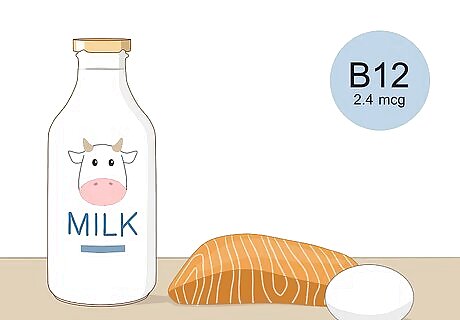
Prevent vitamin-deficiency anemia with 2.4 mcg of vitamin B12 daily. Another type of anemia comes from a vitamin B12 deficiency because this vitamin helps your body produce red blood cells. Include vitamin-rich foods in your diet to get at least 2.4 mcg of vitamin B12 each day. Good sources of vitamin B12 include dairy products (1-1.2 mcg per cup), fish and shellfish (3-80 mcg per servings), eggs 0.6 mcg per egg), red meat and poultry 0.3-1.4 mcg per serving), and fortified cereals (0.6 mcg per serving).
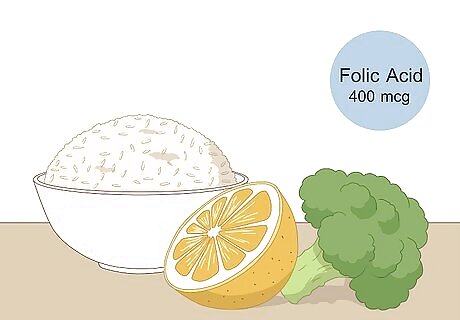
Ingest 400 mcg of folic acid each day to aid in blood cell production. Like vitamin B12, folic acid (also called folate or vitamin B9) helps your body produce red blood cells. B12 and folic acid deficiencies usually go hand-in-hand because foods usually contain both nutrients. Keep your blood cell production high with at least 400 mcg of folic acid each day. Common foods with folic acid include leafy green vegetables (260 mcg per cup), beans (100 mcg per cup), citrus fruits (25-35 mcg per serving), whole grains (90 mcg per serving), and legumes like lentils or chickpeas (25-60 mcg per serving).
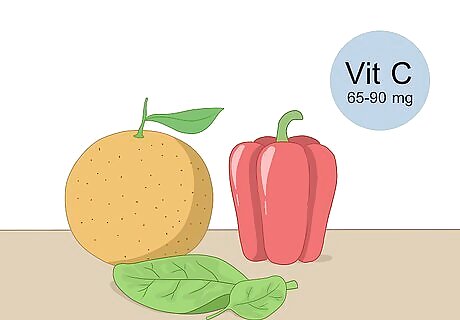
Include more vitamin C to help your body absorb iron. While vitamin C doesn’t directly prevent anemia, it helps your body absorb iron. This keeps your iron levels high. Get 65-90 mg of vitamin C each day to support your body’s iron absorption. Common vitamin C sources are citrus fruits, bell peppers, berries, and leafy green vegetables. For most people, 2 servings of fruit or vegetables each day provides all the vitamin C they need. Getting enough vitamin C also supports your immunity, which helps prevent infections or illnesses that could trigger anemia.
Lifestyle Tips
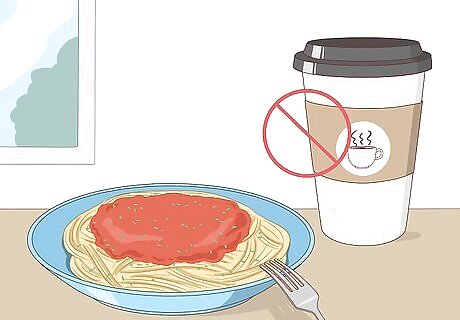
Avoid drinking caffeine with your meals. Caffeine can prevent your body from absorbing iron. If you drink caffeine with your meals, then you may not be absorbing as much iron as possible. It’s best to save your caffeinated drinks for an hour before or after meals so your body absorbs all the iron it can. Remember that coffee and tea aren’t the only drinks with caffeine. Energy drinks and soda could have a similar effect.
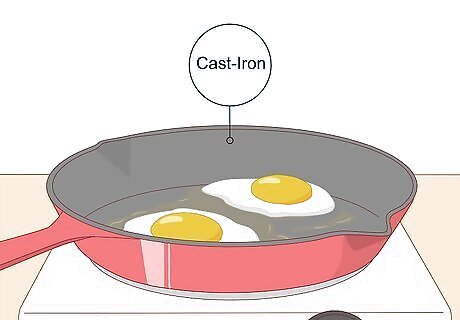
Cook in cast-iron pots and pans to introduce more iron into your diet. Studies demonstrate that cooking with cast-iron pots is an effective way to increase your iron levels. If you need an iron boost, then switching to these items could have a positive effect and help prevent anemia. This is probably only necessary if you already have an iron deficiency or don’t have access to iron-rich foods. Most people can get all the iron they need from their diet or supplements.
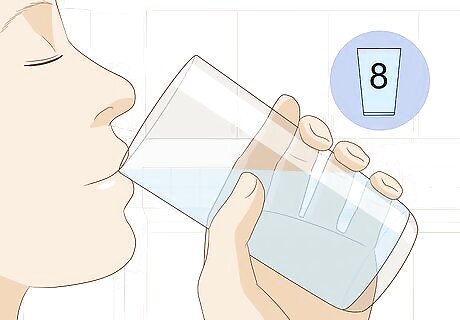
Drink plenty of water to keep your hemoglobin levels up. Staying hydrated is always a good idea, but it’s also an important way to prevent anemia. Dehydration reduces your hemoglobin levels, which could trigger anemia. As a general rule, try to drink 8 glasses of water per day to prevent dehydration. The 8-glass rule is only a guideline, and you might need more if it’s very hot or you’re exercising. Monitor yourself and drink enough water to keep your urine light yellow.
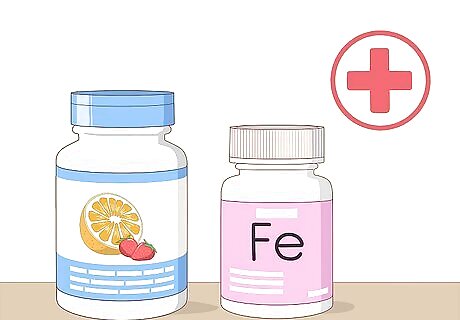
Take dietary supplements if your doctor tells you to. If you have iron or vitamin deficiencies, you may not be able to replace them with dietary changes. Your doctor might recommend taking a multivitamin, folic acid, or iron supplement to bring your levels back up. Take any supplements according to your doctor’s directions. Your doctor will probably recommend supplements if you have an underlying health condition or if you’re pregnant. Your body needs more nutrients than normal in these cases. Take iron supplements exactly as your doctor directs you to. High iron levels could cause constipation, nausea, and other digestive issues.

Follow your doctor’s treatment regimen for any health conditions you have. In some cases, anemia isn’t caused by your diet or lifestyle. A number of underlying health issues could trigger anemia. If you do have any health issues, then follow your normal treatment regimen to keep the condition under control. This can prevent anemia from starting. Autoimmune diseases are a common cause for anemia, as are some genetic conditions. Pregnant people are also more at risk for anemia because their bodies need more red blood cells than normal. Chemotherapy could also trigger anemia.




















Comments
0 comment